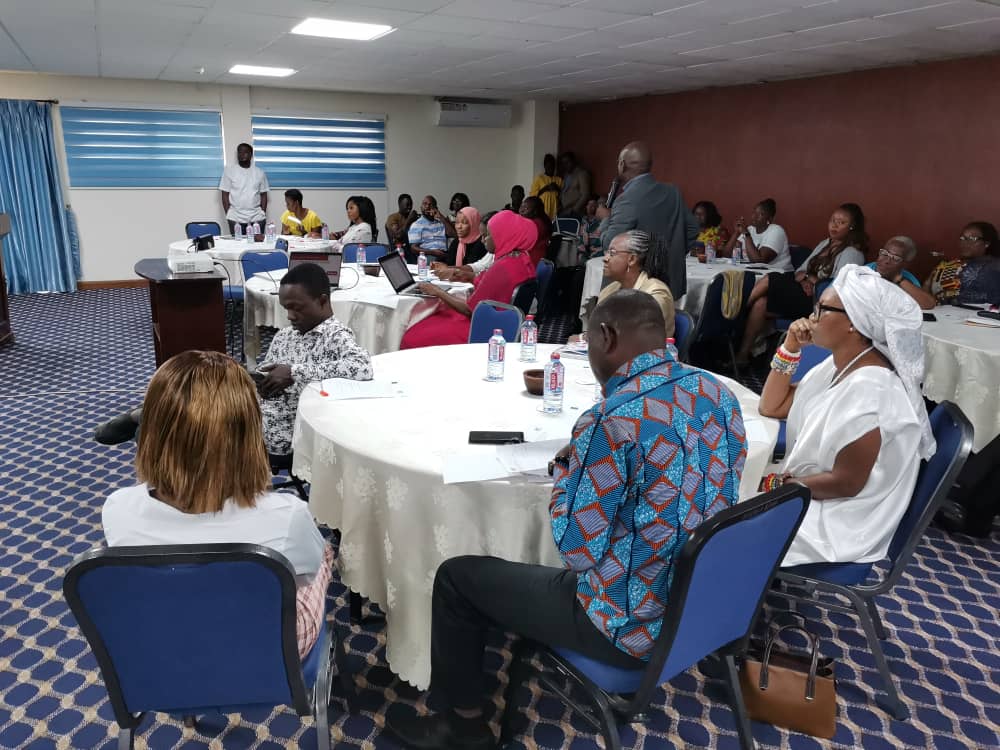By Muniratu Akweley Issah/ Justina Zinge
Accra, Oct. 06, GNA – Dr Alexander Manu, Senior Lecturer, University of Ghana, School of Public Health, says many maternal deaths in the country are due to excessive bleeding and complications.
Dr Manu said over 19,500 babies were born dead in the year 2020 while 75 per cent of the deaths occurred in the first week of birth.
He noted that the mortality rates recorded were because of challenges pregnant women faced leading to complications.
The Senior Lecturer was speaking at a stakeholder meeting, organised by Centre for Social Justice in collaboration with Friedrich-Ebert-Stiftung Ghana, on the theme: “Guaranteeing women’s rights to maternity Protection: The Role of stakeholders”.
Dr. Manu disclosed that 50 per cent of pregnant women in the Northern and Volta regions had their babies at home, attributing the situation to transport challenges, poverty, babies coming too early than expected and health facilities that were too far from the people.
He expressed worry that some cultural barriers among families and communities contributed to challenges affecting pregnant women with complications during delivery.
“ In Ghana, we have made progress in both areas, maternal mortality ratio has fallen from 499 in the year 2000 to 263 in 2020. If you look at the trend, you will be happy and think that we are doing well, but that is over 20 years of achievement, we have just seven years to reach the Sustainable Development Goals ( SDGs) of 70 per 100,000 live births.
“I am more concerned about the Ghanaian woman who is dying, and if we still cannot protect our women, who give birth to us then where is our humanity?
“It is not just mothers, who are dying, babies are dying as well. 39,000 and over babies died over the period, thus 2000 to 2020 and over 19,000 of them were dead at the time that they were born,” he stated.
Dr. Manu said many interventions put in place to change the situation lacked effective coordination and leadership.

He said inequity was also affecting the lives of innocent mothers and their children, explaining that many interventions did not fit into the plans and activities in the protection of mothers and their babies.
Dr Kofi Issah, Director, Family Health Division of the Ghana Health Service, said maternal health interventions could only be efficient and effective in the context of sound policies and stakeholder involvement.
“We should be able to involve all stakeholders whose activities have a direct effect on the health of mothers, families and communities in the country.
He said: “ You will find policies that were formulated ten to fifteen years ago, but lagging effective implementation, we need to evaluate the existing policies and interventions to be able to ensure that such policies would improve the quality of life for mothers and their babies to meet set targets.
Dr Sodzi Sodzi-Tettey, Chairman, Council, Centre for Social Justice (CSJ), a Civil Society Think Tank ,said even though Ghana had made some improvement over the years in the reduction of maternal mortality, the levels were still too high .
“Pregnancy has become a high risk period, mothers and their babies are going through death, we are using this opportunity to highlight the issue as stakeholders deliberate on the issues and find ways to address the challenges.
Dr Sodzi- Tettey said the CSJ would influence political parties to ensure that policies and interventions were factored in their manifestoes to address maternal mortality issues.
GNA